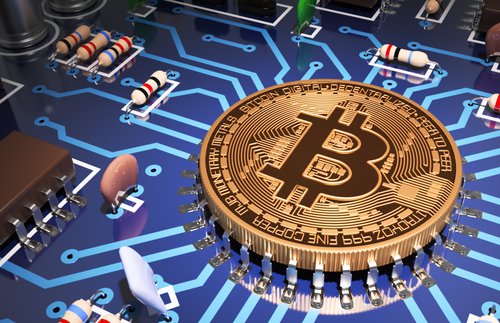Bitcoin has had an extraordinary 2017. At the beginning of the year the price was below $1000, it closed at over $14,000. Of course, the price went even higher earlier in December, briefly going over the $19,000 mark.
But still no one really knows how to value Bitcoin. Is it a commodity? Is it a currency? Will it be widely used as a currency in the future? Could it be a useful hedge against inflation? Is the real innovation in the underlying blockchain technology rather than Bitcoin itself?
I don't have a conclusive answer for any of these questions, but my eye was caught by a stab at valuation by ETF Securities in their 2018 outlook document.
ETF Securities adopted an approach that is often used by commodity investors - look at the marginal cost of production. In other words, how much does it cost to 'mine' a fresh bitcoin?
The supply of bitcoin is fairly predictable because it's determined by the structure of its underlying algorithm. The crucial point is that as more bitcoins are produced, it becomes more and more difficult to 'mine' more coins. The last bitcoin is likely to be mined in 2030 and 99% will have been mined by 2017. It's possible that the speed of mining could increase but that depends on further advances in quantum computing and will probably require even more electricity.
So how do you work out a marginal cost figure?
There are three things to look at.
The cost of the bitcoin mining hardware (computing equipment)
The cost of the electricity that's required - it's huge!
The likely coin output for a certain amount of electricity (that's likely to fall as mining becomes increasingly difficult.)
Using this framework, ETF Securities estimates that the current marginal cost of production is $4,300. By early 2020, as the reward for mining bitcoin continues to fall, the marginal cost may have risen as high as $16,000, according to ETF Securities. In other words, the cost of production would be higher than the current price!
Of course, this is just one way to try and value a commodity. Just because it costs $4300 to produce something, it doesn't mean that it's worth that much. I might spend £1000 on artist materials but I still couldn't paint a painting that was worth £1000.
In reality, it's close to impossible to value bitcoin, but that won't stop me from continuing to observe this amazing phenomenon.
And if you're still tempted to invest in the cryptocurrency in spite of the recent price falls, listen to the latest edition of the Big Call radio show: Bitcoin - how to get involved


